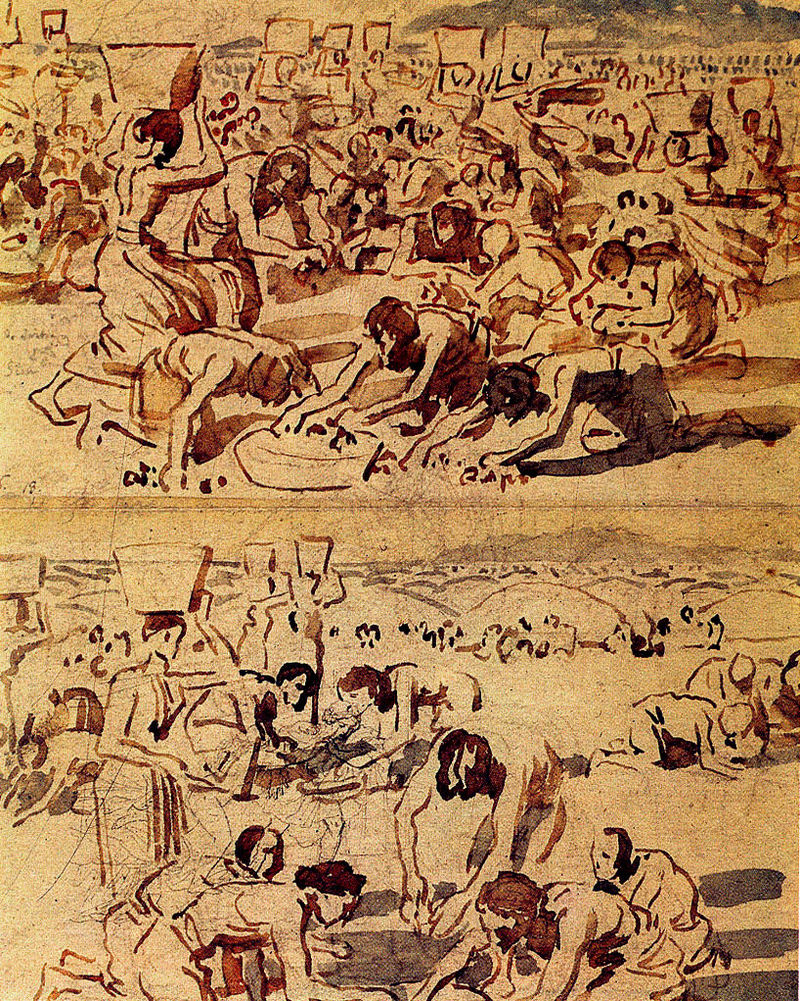A contemporary of Haggai, prophesying during the reign of Persian king Darius over Israel, Zechariah ministered after the exile as the national life was being restored. His book falls into two halves. In chapters 1-8 he is urging the people to complete the rebuilding of the Temple, but while Haggai uses logic to persuade the people that it will be good for them if they get on with it and receive God’s blessing once again, Zechariah uses a series of somewhat strange visions to the same end. This is much more right-brain stuff than the cold logic of Haggai, but what shines through it is God’s desire to bless his people.
The nature of the second half of the book is much more like your trad prophetic oracle, predicting the downfall and judgement of Israel’s enemies and the coming of God to be among the people.

The language, certainly of the first half of the book, is apocalyptic, which we first discovered in the book of Daniel. The weird visions, the angelic guides who interpret for him, the number symbolism: all this set this book firmly in the apocalyptic tradition. It is therefore uncertain as to the exact chronology of the fulfilment of these oracles, but has been interpreted as a messianic text. Certainly there is much which could be seen to link to the life of Jesus: the passage about mourning in 12:10ff, the thirty pieces of silver and the potter in 11:12ff, the striking of the shepherd and the scattering of the flock in 13:7ff. Those writing up the events of Jesus’ life and death had plenty of language here with which to tell their story.
The key point here is the universal reign of God and his final victory. The foreign nations will either be destroyed or will come to worship the one true God. Whilst the book bristles with interpretational problems, which we simply can’t do justice to here, the message is clear: God will reign, so live in ways which will honour and obey him. But these images of a conquering king are interspersed with the imagery of shepherding a vulnerable flock with care and compassion. As such the book reveals the paradox of our God as a caring pastor and a fearless leader.
It raises the question of which version of God we prefer. Currently the fashion seems to be for a ‘nice’ God who is politically correct, who loves us ‘unconditionally’ (where can you find that in the Bible?), and above all who, like all good postmodern people, is tolerant. In past ages God was much more of a warrior, but that idea is well out of fashion now. Zechariah holds out to us a vision of both, and calls us to hold the two in tension. But one thing is certain: his ultimate victory for those who are his people.










